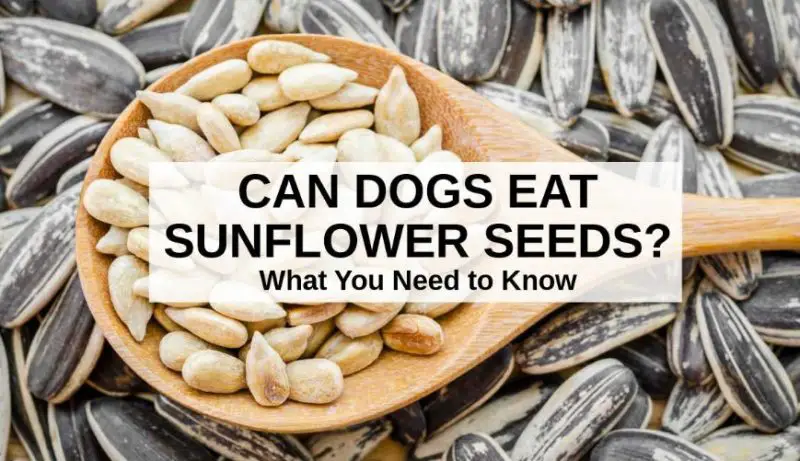As pet owners, we’re always looking for healthy treats to give our dogs, but we often wonder what’s safe and what isn’t. Among the many snack options available, sunflower seeds are a common and popular choice for humans, but can dogs eat sunflower seeds? Are they safe, and do they provide any nutritional benefits for your furry friend?
In this article, we’ll explore whether sunflower seeds are safe for dogs, their nutritional content, the potential risks, and how you can incorporate them into your dog’s diet, if appropriate. By the end, you’ll know everything you need to make an informed decision about sunflower seeds for your dog.
What Are Sunflower Seeds?

Sunflower seeds come from the sunflower plant (Helianthus annuus), which is known for its large, bright yellow flowers. These seeds are often harvested for their edible kernels, which are rich in protein, healthy fats, vitamins, and minerals. Sunflower seeds are commonly eaten as a snack by humans, often roasted, salted, or seasoned, and can also be found in a variety of food products, including salads, granola, and baked goods.
For dogs, sunflower seeds might seem like a tasty treat, but before offering them to your pet, it’s essential to understand the nutritional value and potential risks associated with them.
Can Dogs Eat Sunflower Seeds?
The Short Answer: Yes, But with Caution
Yes, dogs can eat sunflower seeds, but there are a few important considerations to keep in mind. Sunflower seeds are not toxic to dogs, but they can pose risks if not prepared or served correctly. Just like with any treat, moderation is key, and it’s important to ensure that sunflower seeds do not replace a balanced, nutrient-rich dog food diet.
Nutritional Value of Sunflower Seeds
Sunflower seeds are nutrient-dense and provide several health benefits for humans. They are an excellent source of protein, healthy fats, vitamins, and minerals. Below is a breakdown of the key nutrients in sunflower seeds that might be beneficial for dogs:
1. Healthy Fats
Sunflower seeds are rich in unsaturated fats, including omega-6 fatty acids. These fats are crucial for maintaining healthy skin, a shiny coat, and proper brain function. For dogs with dry, flaky skin or dull coats, sunflower seeds may help improve their appearance and health.
2. Protein
Sunflower seeds are a good source of plant-based protein. Protein is essential for muscle growth, repair, and overall bodily functions. For dogs that are active or have higher energy needs, the protein in sunflower seeds can complement their regular diet.
3. Vitamins
Sunflower seeds are loaded with important vitamins, including vitamin E, B vitamins (such as B1, B6, and folate), and vitamin A. Vitamin E is an antioxidant that helps protect cells from damage, supports the immune system, and promotes healthy skin. B vitamins support energy production, brain function, and red blood cell formation.
4. Minerals
Sunflower seeds are rich in minerals such as magnesium, phosphorus, and selenium. Magnesium plays a crucial role in muscle and nerve function, while phosphorus supports bone health. Selenium is an antioxidant that helps protect against oxidative stress.
Potential Benefits of Sunflower Seeds for Dogs
When given in moderation, sunflower seeds can offer some health benefits to dogs. Here are a few advantages:
1. Improved Skin and Coat Health
Sunflower seeds contain healthy fats, including omega-6 fatty acids, which can contribute to healthier skin and a shinier coat. If your dog has dry or itchy skin, adding sunflower seeds to their diet could help improve their skin’s appearance and reduce irritation.
2. Boosted Immune System
The high vitamin E content in sunflower seeds supports your dog’s immune system. Vitamin E is a powerful antioxidant that helps protect cells from damage and can boost your dog’s ability to fight off infections and illnesses.
3. Increased Energy Levels
The protein and healthy fats in sunflower seeds provide a good source of energy for your dog. If you have an active or working dog, adding sunflower seeds to their diet can help sustain their energy levels throughout the day.
4. Improved Digestion
Sunflower seeds are high in fiber, which can promote healthy digestion in dogs. Fiber aids in regulating bowel movements and can help prevent constipation. If your dog has a sensitive stomach or digestive issues, sunflower seeds may help improve their digestive health.
Risks of Feeding Sunflower Seeds to Dogs
While sunflower seeds offer several benefits, there are also some risks associated with feeding them to your dog. These risks can be minimized by following proper guidelines and serving sunflower seeds in moderation.
1. High Caloric Content
Sunflower seeds are high in fat and calories. Feeding your dog too many sunflower seeds can lead to excessive calorie intake, which may contribute to weight gain and obesity. If your dog is overweight or prone to gaining weight easily, it’s important to limit their intake of sunflower seeds and ensure they are offered as an occasional treat.
2. Choking Hazard
Sunflower seeds, especially when unshelled, can pose a choking hazard, particularly for smaller dogs. It’s essential to only feed your dog shelled sunflower seeds, as the shells can be difficult to chew and could get stuck in your dog’s throat or cause digestive issues.
3. Salt and Seasoning
Many commercially available sunflower seeds are roasted with salt, oil, or other seasonings. Salt is harmful to dogs and can lead to sodium poisoning, causing symptoms like vomiting, diarrhea, excessive thirst, and lethargy. It’s crucial to avoid giving your dog salted or flavored sunflower seeds, as these can be dangerous to their health.
4. Allergic Reactions
While rare, some dogs may be allergic to sunflower seeds. Signs of an allergic reaction can include itching, swelling, gastrointestinal upset (vomiting or diarrhea), or respiratory issues. If you notice any of these symptoms after feeding your dog sunflower seeds, stop feeding them immediately and consult your veterinarian.
5. Digestive Upset
Feeding your dog too many sunflower seeds can cause digestive upset, including bloating or diarrhea, due to their high fat and fiber content. It’s important to introduce sunflower seeds gradually into your dog’s diet and monitor them for any signs of discomfort.
How to Safely Feed Sunflower Seeds to Your Dog
If you decide to feed your dog sunflower seeds, it’s important to do so safely and appropriately. Here are some tips for incorporating sunflower seeds into your dog’s diet:
1. Choose Shelled Sunflower Seeds
Always choose unsalted, shelled sunflower seeds. The shells can pose a choking hazard and may be difficult for your dog to digest. Shelled sunflower seeds are easier for your dog to eat and digest, reducing the risk of gastrointestinal issues.
2. Serve in Moderation
Sunflower seeds should be treated as an occasional treat, not a regular part of your dog’s diet. Because they are high in fat and calories, it’s important to limit their intake to avoid weight gain. Small dogs should receive no more than 1-2 teaspoons of sunflower seeds per day, while larger dogs can have up to 1 tablespoon.
3. Avoid Salted or Flavored Seeds
Never feed your dog salted, flavored, or roasted sunflower seeds. These can contain harmful additives that are toxic to dogs, such as salt, oil, or seasonings. Always opt for plain, raw sunflower seeds to ensure they are safe for your dog.
4. Observe Your Dog’s Reaction
When introducing sunflower seeds into your dog’s diet, start with a small amount and observe them for any adverse reactions. If your dog shows signs of digestive upset, allergies, or discomfort, discontinue feeding them sunflower seeds and consult your veterinarian.
How Much Sunflower Seed Should I Feed My Dog?
The amount of sunflower seeds you can safely feed your dog depends on their size and activity level. Here are some general guidelines:
- Small Dogs: 1 teaspoon of sunflower seeds per day.
- Medium Dogs: 1 tablespoon of sunflower seeds per day.
- Large Dogs: Up to 2 tablespoons of sunflower seeds per day.
Remember, sunflower seeds should never replace your dog’s regular food. They should be given as an occasional treat and not as a primary source of nutrition.
Conclusion: Can Dogs Eat Sunflower Seeds?
In conclusion, sunflower seeds can be a healthy and tasty treat for your dog when given in moderation and prepared correctly. They are packed with beneficial nutrients, including healthy fats, protein, vitamins, and minerals, that can promote better skin, coat health, digestion, and overall well-being. However, sunflower seeds also come with potential risks, including choking hazards, high-calorie content, and the dangers of salted or seasoned seeds.
As long as you feed your dog shelled, unsalted sunflower seeds in moderation, they can be a safe and beneficial addition to your dog’s diet. Always monitor your dog for any adverse reactions and consult your veterinarian before introducing new foods. By following these guidelines, you can enjoy the benefits of sunflower seeds as a treat for your dog while ensuring their safety and health.






